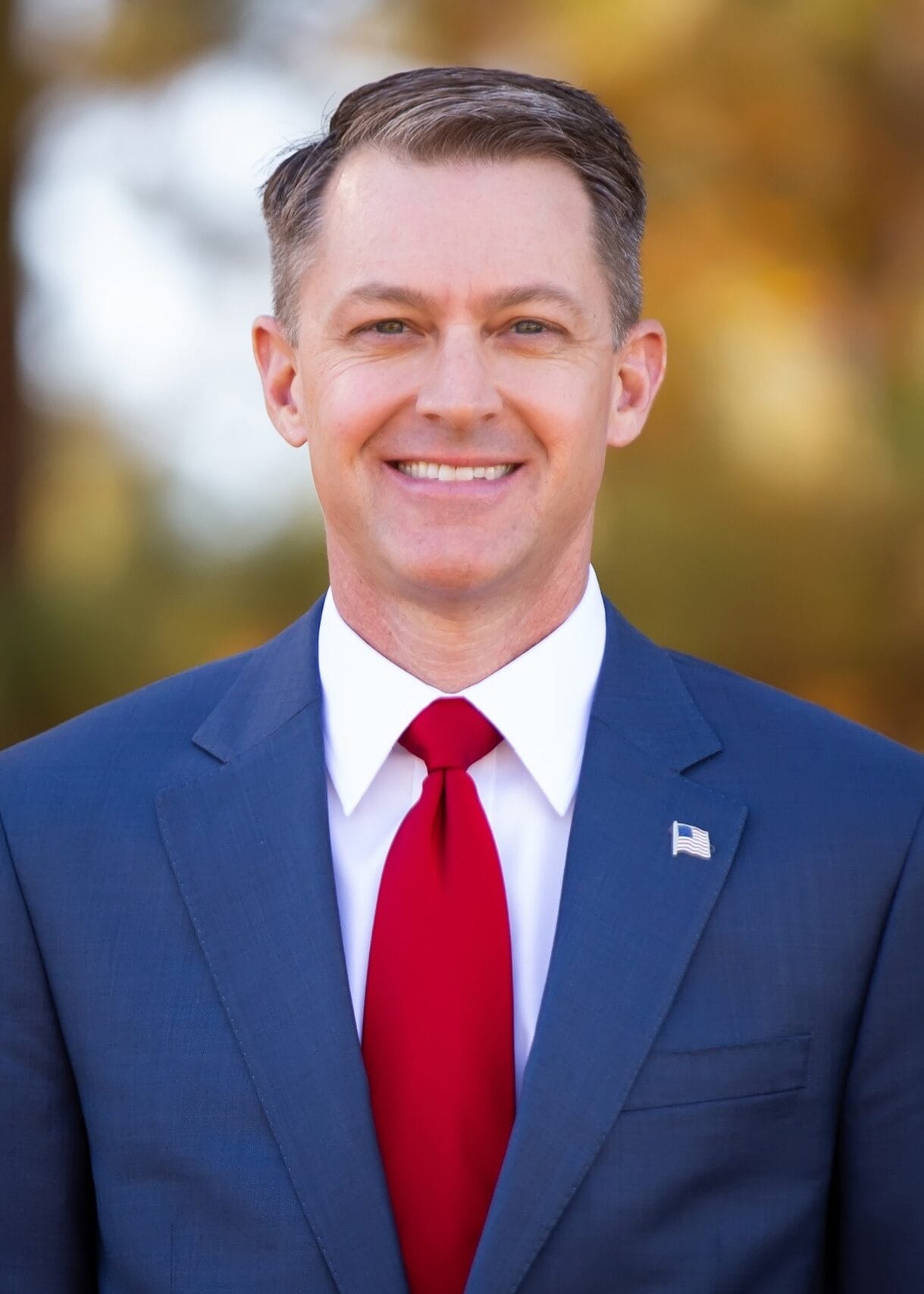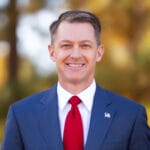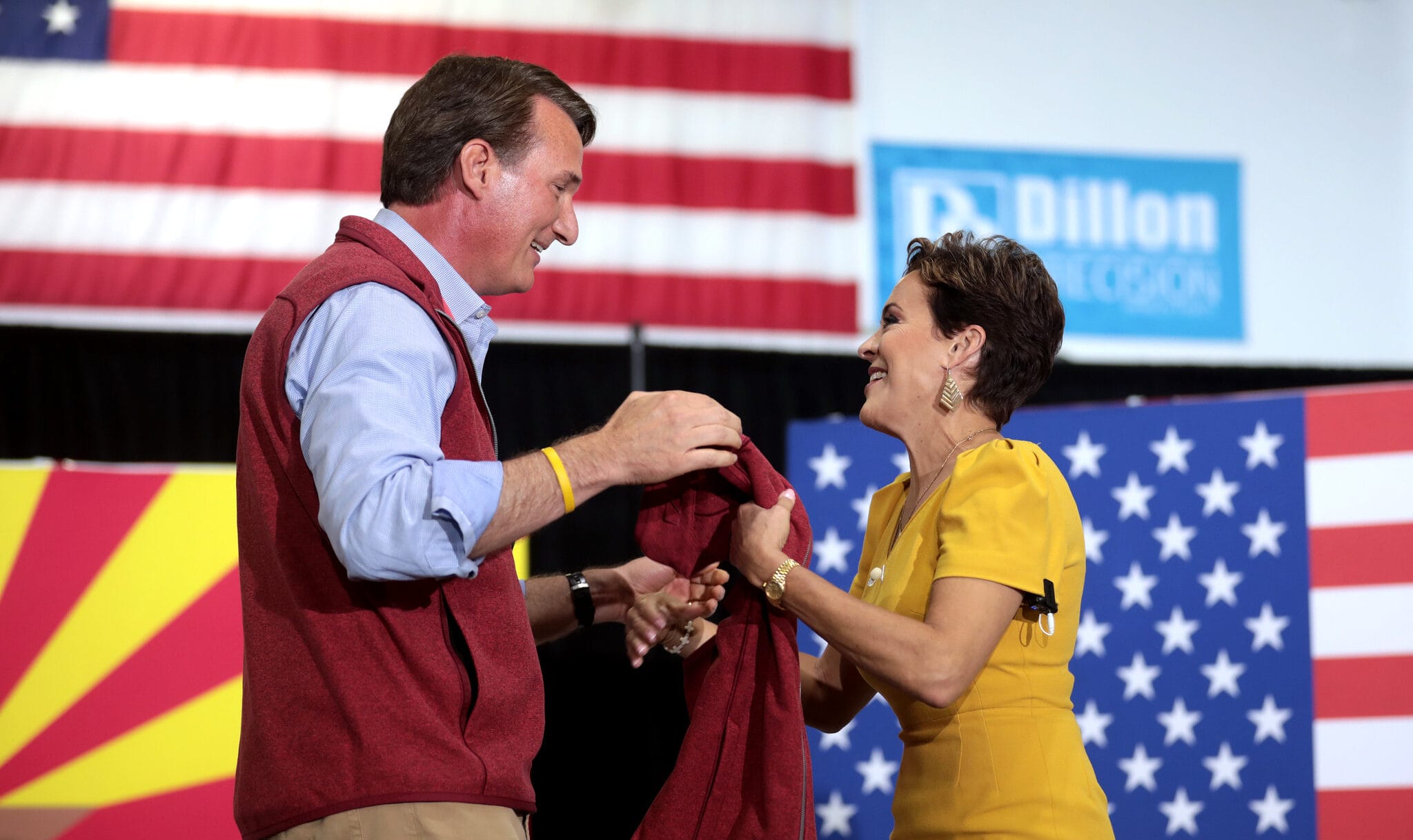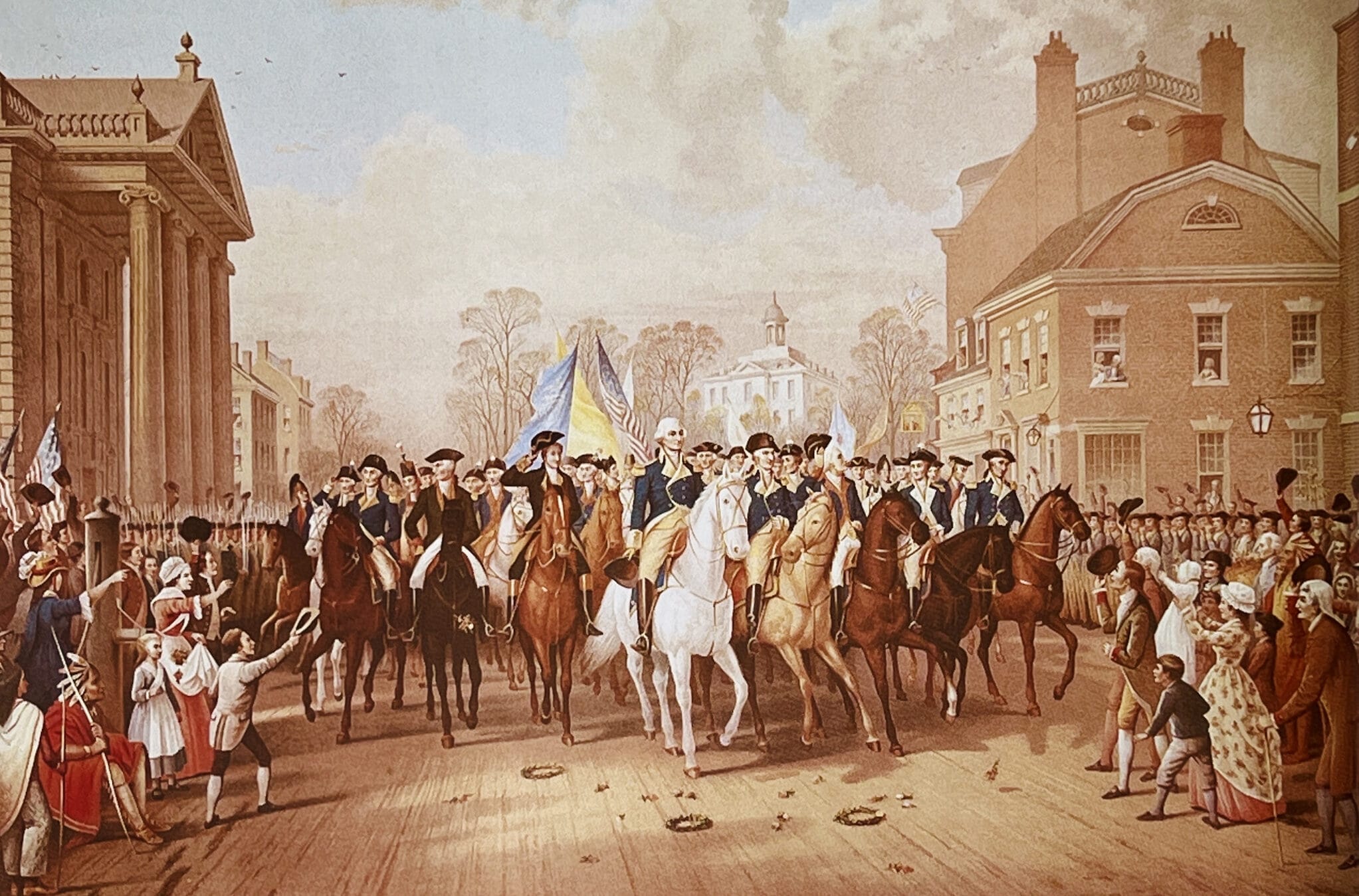Protecting the vote: A conversation with Alabama’s Wes Allen

Wes Allen is Alabama’s 54th secretary of state. A former member of the Alabama House of Representatives, Allen represented District 89, including Pike and Dale Counties. Prior to his election to the Legislature, he spent nearly a decade as the probate judge of Pike County, serving as the county’s top elections official and conducting more than a dozen elections without a single error. He recently spoke with American Habits editor Ray Nothstine.
I can’t remember if we asked this of Secretary Michael Watson in Mississippi last year, but is there anything unique to the secretary of state of Alabama compared to other states? Are there any underappreciated powers here that people might not know about, especially if they’re not living in or from Alabama?
Wes Allen: You interviewed a great man in Michael Watson. He’s a good friend, and he’s doing a fantastic job for Mississippi. I’m honored to be able to serve as Alabama’s secretary of state. I don’t take these duties lightly. We have over a thousand statutory requirements that the Legislature has laid out for this office over the years. It’s a vast, wide array of things that this office has jurisdiction over. Number one, like most secretaries around the country, we are the chief elections official.
I came from a local level. I was a probate judge for almost 10 years serving in Pike County. As you know, those duties were chief elections official for civil court, licensed official, ministerial, administrative duties—all kind of things that really kind of worked and transitioned well to the secretary’s office here. We’ve assembled a great team and we’re proud of the folks we have working in this office. We’re all united in the same philosophical belief and forward focused.
This office does a lot with business entities throughout the state, as a lot of secretaries’ offices do in other states. We try to find ways to partner with small business, those folks who are getting up every morning before daylight and working hard and trying to build their communities and doing all the things they want to do to provide for their families. We passed a piece of legislation this past year that attacked red tape and these annual reports that businesses must file with this office.

We said that’s too burdensome. It wasn’t a huge fee, but it was just the aggravation and hoops that small business owners must jump through. We said, “Let’s just get rid of that.” We helped draft the legislation and had two great bill sponsors, Rep. Margie Wilcox in the House, and then Sen. David Sessions in the Senate. You couple that with the chief elections’ official role, and it keeps us busy here in this office. We work very closely with a lot of local officials all over Alabama. One of the things I find most gratifying is being able to build those relationships and work for them.
Many have lost faith in the integrity of their elections. Still, there is a segment of the population who view the federal government as a completely fair or neutral actor in elections. They believe the feds are just referees. Are there problems with that mindset? Wouldn’t Alabama have more of a vital interest in a fair election than even the federal government?
Allen: Sure. One of the things we’re dealing with right now is voter file maintenance, and that’s the foundation of election integrity. The National Voter Registration Act (NVRA) of 1993 is one of those federal laws, where, at the time they passed it, they just didn’t see 2024 and the issues we’re dealing with now, with verifying citizenship, with voter registration forms being sent to legal noncitizens and illegal aliens.
Anybody that encounters those federally funded state agencies, whether they’re eligible to vote or receive any benefits, they’re getting a voter registration form. Being able to reform the NVRA is vital. That’s just one way, as your question alluded to, that the federal government needs to reform—or just get out of the way altogether—and leave the voter registration up to the individual states.
What is the role of the federal government for elections in Alabama or other states? Should they be mandating universal ID requirements? I know there have been bills before Congress. Should they be able to require same-day voter registration? Here in North Carolina, we have early voting. I’m not a huge fan, but it’s very popular with a lot of voters. Or maybe the feds mandate mail-in balloting. Should the federal government have any role in mandating some of these rules and regulations in states?
Allen: We’ve got to be very careful when approaching the federal government getting involved with the elections, because there is a separation of powers that the Constitution clearly lays out in favor of the states. I am not a fan of automatic or same-day voter registration. Let me go back to the National Voter Registration Act. It doesn’t allow us to remove individuals off our voter files for four years. If they move to North Carolina from Alabama, it takes four years to remove someone unless they’re deceased. These automatic voter registration or same-day voter registration proposals make it difficult to maintain clean voter files and lead to bad outcomes.
Here in Alabama, we have a strong voter ID law that requires voters to present photo identification when they apply for an absentee ballot or when they go to vote in-person on Election Day. It’s a law that the federal courts held up. Alabama makes photo identification free of charge if [someone doesn’t have] a valid driver’s license, a passport, or a federal ID to get on a federal base—or any number of needs. We have a long list, eight or nine IDs that are acceptable at the polls.
Our law is common sense. It makes sure that no fraud can get in on Election Day. We feel confident about our photo identification law here.
I think you were one of the architects of a bill in Alabama related to “Zucker bucks” and outside money. How big of a concern is that in terms of pouring money into state elections and particularly local areas? Michael Watson mentioned “Zucker bucks” and there also look to be federal initiatives involved to fund third-party voter registration efforts. How concerning is that when it comes to fairness and the separation of powers, because it seems like some of that money could be going to partner with outside sources and targeting specific areas in a state to manipulate elections?
Allen: It’s an issue. I was proud when I was in the Alabama Legislature for those four years to sponsor the bill to prohibit the Zuckerberg bucks coming into Alabama to fund local election offices here. I think we had seven counties accept that, back before it was illegal. That can be a problem when you couple that with the Biden executive order from March of 2021 that basically weaponizes and mobilizes the entire federal government apparatus as voter registration agencies.
The federal government should not be involved. We do a fine job of making voter registration available. You can register to vote on your smartphone, desktop, or on paper. We’ve got a little over 3.7 million registered voters in Alabama and around 3.9 million that are of voting age. That’s about 95 or 96 percent of people that are registered here. It doesn’t make any sense to complain about voter suppression in Alabama.
We need to see if any legal noncitizens had slipped through the cracks and registered to vote. They denied us that.
Because of President Biden’s executive order, we’re constantly making requests to the federal government about where the money is coming from and flowing to, who it is going to train, and if it’s going to train individuals in these third-party groups that are partisan. They can claim they’re nonpartisan all day, but they are not.
Your office probably receives a lot of directives or guidance letters from the federal government when it comes to elections. I assume some of those might be routine, like disability compliance. But others might be problematic. What happens when you get guidance that erodes Alabama’s authority? How does your office go about determining their legality or how important they are? Maybe there’s room for pushback.
Allen: The first thing I do if we receive something from the federal government, whether it’s a mandate or a suggestion, is turn it over to our legal team. If it conflicts with our state law, we start from there. Again, the federal government, especially this administration, is pushing the limits in a lot of areas.
They don’t really want to work with us when we ask for information. I asked the US Citizenship and Immigration Services under the Department of Homeland Security for a list of legal noncitizens that they have in their possession and for those alien identification numbers, so we could run that against our voter registration database that’s centrally held here. We need to see if any legal noncitizens had slipped through the cracks and registered to vote. They denied us that.
I don’t understand that line of thinking. First, it’s a taxpayer-funded agency. I believe we have a right to it. Number two, it’s common sense to prohibit noncitizens on our voter file. We’re continuing to push to gain access to that information and we’re not going to give up.
You’re a former state legislator. How do state legislators best assist the job of a secretary of state? How do they help secure these free and fair elections? You’ve done a lot of reforms in Alabama and educated people on that. What makes that work, so to speak, that relationship and improving that relationship?
Allen: You spoke it in your last word: relationships. It’s essential that we maintain great relationships because it builds trust. Good things happen when you build trust.
With our legislative agenda over the last two sessions, we wanted to take paper ballots and make sure those were used in every election from municipal through state and federal elections. We took that out of the administrative code, and we made a state law where we’ll always require paper ballots. The tabulation that we use will never be connected to the internet.
We’ll always have receipts of those paper ballots in case there’s ever a contested election or ever any questions. That builds confidence. We are very targeted in fortifying our elections process and making sure that the public understands what we’re trying to do. Transparency creates good outcomes.
This is a privacy concern to some extent, but secretaries of state are usually at the forefront when it comes to states sharing personal data with the feds or even other states. Some of that has to do with going after serious criminals who are breaking the law. How do you decide what to share in your office or what specifically to share with the feds? Is that ever a concern of your office or something your staff thinks about?
Allen: I don’t know if there’s been anything that’s crossed my desk that they’ve requested that is concerning.
Personal information is important. That’s one reason I pulled Alabama out of ERIC—the Electronic Registration Information Center—that third-party vendor that helped manage our voter registration. I didn’t think information about those minors that are approaching the age of 18 needed to be passed along to a group that was out of state. We just didn’t think that was right for Alabama.
What we decided to do was get out of ERIC and start our own program, which is the Alabama Voter Integrity Database (AVID). Then we came up with these bilateral agreements that we signed with Tennessee, Georgia, Florida, Mississippi, and Arkansas. We’re working with other states now to get those agreements to share data finalized, those MOUs or memorandums of understanding. We are working to make sure we maintain clean voter files and that none of the individuals that we found on those lists are double registered.
How does the Alabama secretary of state deal with local election officials departing from state election law or procedures? Has that ever been a problem?
Allen: No, we haven’t seen that. I was sworn in January of 2023. We’ve been through a primary back in March and then a primary runoff in April. There was some Saturday voting back in 2020 before I was elected to this office. There’s not going to be any Saturday voting for the November election.
By and large, the local officials here—and I used to be one and know a lot of those ladies and men—are all doing a phenomenal job. We stay in close contact with them. We give them some guidance and some directives on stuff related to the administration of our election laws. I haven’t seen anything where someone is blatantly disregarding law. We’ll address it if we do.
I’m going to ask you about ranked choice voting. I saw you banned it in Alabama. Obviously, there are a lot of proponents and a lot of people who object to it. What was the reason in Alabama for banning it?
Allen: Yes. First off, no municipality in the state and no counties utilize ranked choice voting in any way. We wanted to get out in front of this issue and make sure it never got its way into Alabama. This ranked choice voting is a confusing, chaos-inducing scheme. It makes winners out of losers, and confuses voters. There are thousands of spoiled ballots that get thrown out because people don’t understand the ranking process. I saw some article today, maybe in Arlington, Virginia, where they’re still waiting for tabulation to come in or it took forever to get those votes tabulated.
We love the way we do things now in Alabama. At the end of the night, you’re going to know who wins and loses. One person, one vote is extremely important, and we want to protect that and protect the way we’ve done it here.
I was proud of Sen. Arthur Orr for sponsoring that in the Senate, and then Rep. Mark Shirey in the House for shepherding that bill along, and then Gov. Kay Ivey for signing the bill.

We hear a lot of bad news today. People who are stuck in the 24/7 news cycle and carry a lot of anger and angst and some of it’s understandable. But what encourages you about the culture and people of Alabama that can help restore a society where self-government and our proper structures of government are respected?
Allen: I get to visit with so many hard-working Alabamians that really invest a lot of time, effort, blood, sweat, and tears into their communities, into their small businesses, into their civic groups, into their churches, into the local ballparks, into the cultural arts, into so many of the activities around Alabama. It’s so heartening to see that, and I’m so encouraged to see how much people love their families, their family name, their communities. They love this state. They love their history. They love their heritage. They want a state that allows their children and grandchildren to have freedom and prosperity.
I was in a small community yesterday that is experiencing a rejuvenation of their downtown square because people are getting involved in that. I encourage people to turn off the 24/7 news cycle, focus on relationships, focus on what’s real. Avoid the counterfeit distractions. We see so much counterfeit content come through those black screens we look at all the time, right? It’s better to focus on our faith.
My faith in Christ is important and we’re really involved with our church—the First Baptist Church in Troy. Focus on those things that create strong communities like faith and personal interaction. I try to be an encourager when I go out and give little talks around the state. I also gain strength from them by watching them get up and work hard each day.



